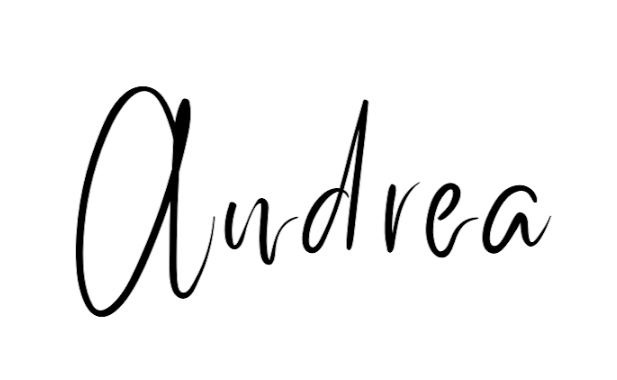
Article Summary
This article provides actionable strategies for recent graduates facing a challenging job market, marked by rising unemployment and underemployment. It shows how to lean into AI automation by reframing transferable skills, building a personal brand, and networking strategically. This guide explores strategies to improve employability by developing AI literacy. Practical steps such as optimizing LinkedIn profiles, using AI tools, and engaging mentors or career coaches are highlighted as ways to turn setbacks into stepping stones and move forward with clarity and confidence.
Graduating feels like crossing a finish line, right? You’ve got your cap and gown photos, a brand-new degree, and a big dream in your back pocket. But then reality hits. Right now, according to recent studies, grads are facing a rough start: unemployment for college grads has jumped to 5.8%, up from 4.6% last year. On top of that, nearly 41% of grads in their early 20s are stuck in jobs that don’t require a degree at all.
I get it. It feels like you’re doing everything right and still getting ghosted. It’s not just you. Between shaky economic policies, unpredictable shifts in industries, and the impact of AI on entry-level positions, we’re all riding a pretty bumpy wave.
But here’s the thing: There are practical ways to boost your chances and find employment
Understanding the Challenges: The Job Market Reality for Grads
When you’re just starting out, there’s this awkward push-pull. Everyone wants experience, but you need someone to hire you to actually get it. At the same time, companies are dealing with policy changes, budget cuts, and technological advances that make them hesitant to invest in new hires.
AI is another curveball. It’s taking over some tasks that used to be stepping stones for people in entry-level jobs, like data entry or basic marketing work. But that doesn’t mean you’re out of options. It just means we need to get creative and play a smarter game. See the examples below on how to show your AI experience.
Shift Your Mindset from Student to Professional: Reframe “No Experience”
You might not have a fancy title or years of experience yet. But think about what you do have.
Did you lead a club or a class project?
Did you work part-time, help run events, or volunteer?
Did you tackle big assignments under tight deadlines?
Each of those equates to skills, teamwork, problem-solving, and communication, which employers value. You can highlight these when applying for entry-level positions. It’s about showing that you’re hungry to make a difference, solve problems for them, and add positivity to their teams.
Differentiation Is Your Superpower: Build a Personal Brand
Standing out from other recent grads means more than just a good GPA. Building a strong personal brand helps you show what you bring to the table before you even walk through the door.
Start with a clear, well-written LinkedIn profile. Show off your projects, achievements, and even volunteer work. To ensure recruiters spot elements of their job needs in your profile and the LinkedIn search engine properly showcases your profile in a recruiter search, be sure to incorporate keywords and phrases from job descriptions that speak to your experience. Even if you’re not a designer, a simple website or online portfolio can help you exhibit writing samples, reports, or campaigns you have worked on.
Ensure your social channels reflect a positive and professional side of you. Delete anything that is not reflective of how you want to be viewed from an employer. A career coach, or even a one-time job coach, can help you create a concise story and direction within your social media channels.
Network Intentionally
I know networking is not something many people are comfortable doing. But the data shows that between 50% and 85% of roles get filled through networking, making it an essential skill you need to develop.
Reach out to alumni from your school, or send a quick message to someone working in a role you admire. Begin by asking them what their day-to-day looks like and how they got started. After establishing a good start to the conversation with your contact, tell them that you’re seeking employment. Share your skills, professional interests, and the types of roles you are hoping to land. They may be able to refer you to other people for more networking or ask for your resume to give to their company, or suggest a few companies for you to consider.
Join local meet-ups or career fairs, even if they’re virtual. The more people you meet, the more chances you have to find those hidden recent grad positions or get a referral that jumps your application to the top of the pile.
Steps to Improve Your Odds: Gain Experience Creatively
If you can’t find the perfect role right away, get creative. Ask yourself how you can get closer in proximity to the people or responsibilities similar to the work you are seeking. Freelance gigs, internships (yes, even unpaid), volunteering, shadowing a job, or part-time work in your field can all help you build real-world skills.
These are all important stepping stones. Each experience teaches you something new and strengthens your resume. And they can help you feel more confident while searching for full-time entry-level positions.
Steps to Improve Your Odds: Gain and Show AI Experience
It’s no secret that companies are making major inroads, incorporating AI to automate processes and prioritizing adding AI into business operations. While some CEOs will say they don’t see AI replacing employees, the reality is, especially for recent college graduates, there has been a reduction in the number of entry-level job openings.
To increase your odds of being considered for the few entry-level positions, I recommend you lean into AI. Here are some ways you can incorporate AI into your job search.
- Research the types of AI your target list of companies/industries are using and become familiar with it. If you are not sure which tools are used at the companies or industries, research how they’re being used at the job function level. For instance, how are accounting departments using AI? If it’s readily available online, subscribe to the free or paid version and practice some of the features. Study the AI company’s website to become familiar with the features. Read the online reviews so you can demonstrate your knowledge of the strengths and weaknesses of the AI tool.
- Take a course or attend workshops on how to use AI. This will give you the critical skill of how to develop structured prompts. Use this skill to generate some relatable examples that illustrate how you might employ AI in the job you are applying for. Simulate an industry problem and how you used AI to solve the problem. Even if your example is not spot-on, you’re showing initiative that relates to the type of work you expect to be doing at the company.
- Add the AI product experience, courses and certifications to your resume and LinkedIn profile and ensure visibility.
- Write an article about AI related to the industry or type of job you are seeking and post the article on your LinkedIn page and website.
- If possible, be prepared to describe the limitations of AI for the position you are seeking so you can share talking points on how you can add value beyond AI.
Stay Resilient and Measured: Set Realistic Expectations
Your first job may not be your dream gig. And that’s perfectly okay.
When I graduated with my Master’s in Industrial/Organizational Psychology, I was seeking a role in Human Resources. It was difficult finding a job in this area without the experience. I had bills to pay and decided to apply for a customer service role at a growing company 30 minutes from my home. After working in that role for 6 months, the company posted a recruiter opening on their internal job board. I applied and was hired. That began my career in Human Resources.
We hear stories of people jumping straight into glamorous jobs, but most folks start small and work their way up. Careers are like long road trips. You’ll take wrong turns, hit traffic, and sometimes need to pull over for a bit. But if you keep your foot on the gas, you’ll eventually reach your destination.
Take Ownership of Your Path
Please remember: you’re not powerless. Your attitude, effort, and flexibility can move you forward, even when it feels like the world’s against you.
Every rejection? It’s just a chance to refine your approach. Every setback? Another lesson in what works and what doesn’t.
If you ever feel stuck with things in life, explore life coaching sessions to help you re-center and set a plan that feels true to you. If the job search is giving you difficulty, it may be helpful to work with a career coach who can help you enhance your resume, LinkedIn profile and job search strategy.
The job market may feel tough right now, but you’re tougher. Keep showing up, keep learning, and don’t be afraid to take those small, brave steps forward.
As I always like to say – You got this!

References
TIME: How Recent Grads Can Get a Job—Even in a Challenging Labor Market
CNBC: College grads face a ‘tough and competitive’ job market this year, expert says
About the Author
Andrea Tropeano has coached thousands of people toward career success. She supports students, professionals and leaders in removing obstacles that are impeding positive desired results.
Her expertise focuses on addressing career confusion, job search, interview preparation, resumes, LinkedIn profiles, leadership development, professional coaching, and ADHD-if that plays a part in one’s career story.
Andrea received her Master of Arts in Industrial-Organizational Psychology from the University of New Haven.
She is a board-certified coach specializing in career, life, ADHD, and leadership success, holding credentials as a Professional Certified Coach (PCC) with the International Coaching Federation (ICF), a Board-Certified Coach (BCC) with the Center of Credentialing & Education, and an ADHD-Certified Coach (ACCG) through the ADD Coach Academy.





